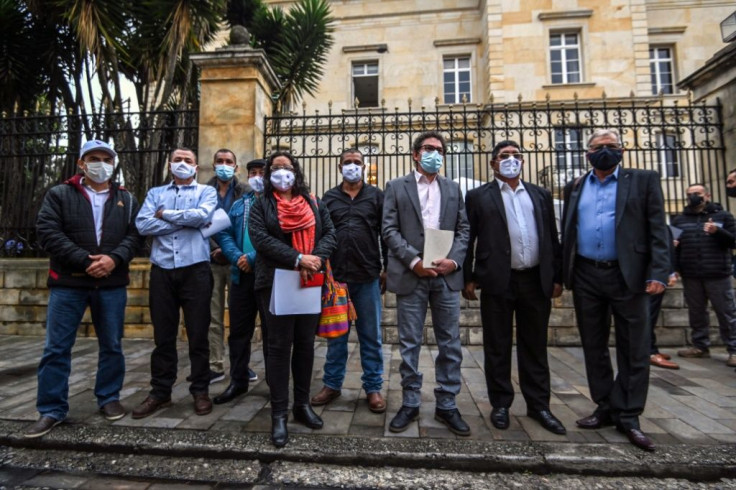Colombia's Duque Holds Talks With Ex-FARC Leaders
Colombia's President Ivan Duque held talks with former FARC guerrilla leaders Friday, pledging to speed up the integration of ex-combatants following the 2016 peace agreement, a top advisor said.
Duque's commitment came during an unprecedented meeting between the hardline president and leaders of the former leftist guerrilla movement in Bogota.
Duque, famously critical of aspects of the peace deal he says is too lenient on FARC, pledged to work "to move the reintegration process forward," said Emilio Archila, a top government advisor on post-conflict who attended the meeting.
The meeting at the presidential palace followed a 10-day march on Bogota by ex-combatants to demand the government keeps its commitments under the 2016 peace deal that led to the disarmament of 13,000 fighters and turned FARC into a political party.
The ex-guerrillas say they need greater protection as their lives are increasingly at risk from other guerrilla groups and drug trafficking organizations.

The reason for the march was to draw attention to the murders of 237 of their former comrades since 2016.
Pastor Alape, leader of the political party that emerged from FARC after it disarmed, said Duque's gesture would help fight the "stigmatization" he said encourages violence against the 13,000 who disarmed.
"There's an agreement to strengthen and accelerate the reintegration process" during Duque's remaining 22 months in office, said Alape after the meeting.
The right-wing leader's term ends in August 2022.
Both sides agreed to study additional measures to protect the ex-rebels from dissidents who rejected the peace agreement and other illegal groups who authorities say are responsible for the spate of murders.
© Copyright AFP {{Year}}. All rights reserved.





















